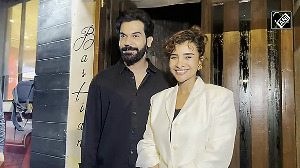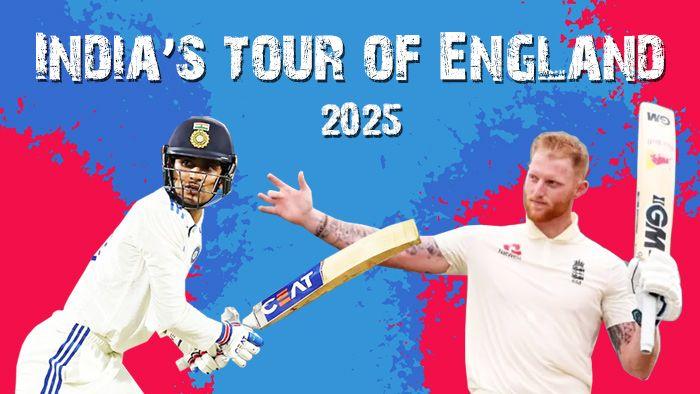Real Madrid, Manchester United and the rest of Europe's club giants return to the Champions League this week thinking millions, both in terms of income and the fans who will watch them live and on television.
Nothing will be further from the minds of Ronaldo and David Beckham than the plight of little Stade de Reims, the beaten finalists in the first European Cup final in 1956 who are now in the lower reaches of the French second division.
After all, their high-profile life at Real and United has little connection with the modest Reims players who turn out weekly in front of just a few thousand fans.
Yet without this singular club from the cathedral city in eastern France, neither Real Madrid and Ronaldo nor United and Beckham might be where they are today.
Soccer owes an historic debt to the French for their vision of globalisation long before the term was conjured up. The French inspired the creation of FIFA, the World Cup and the European championship.
But without Reims and their champagne football in the 1950s -- which also saw them reach the European Cup final in 1959 when again they lost to Real -- they would not have had a club around which to build the European club cups.
Founded in 1931, Reims were the supreme club force in France when Gabriel Hanot, editor of L'Equipe, proposed his European Champions Cup in 1955.
They had been French champions three times in seven years, cup winners once and winners in 1953 of the Latin Cup, the immediate precursor of Hanot's baby.
Oddly, Hanot was no great fan of Reims and Raymond Kopa, their mesmeric and creative little centre-forward. Reims played a football which was too "pragmatic and scientific" for Hanot's taste. But they had cornered the market in domestic talent.
No French club, before or since, has projected French football with such nationalistic clarity or purity of purpose.
TWISTS OF FATE
St Etienne in the 1970s were built on a foreign nucleus of Yugoslav goalkeeper Yvan Curkovic and Argentine defender Oswaldo Piazza. The reputation of Marseille, in the 1990s, was terminally undermined by match-fixing sleaze.
Yet today, while Real Madrid are planning to extend the Bernabeu Stadium's 95,000 capacity, Reims play in the modest Stade Auguste-Delaune with a capacity, rarely reached, of 7,000, more than half of them standing.
Madrid boast 20 internationals including world-famous players from Brazil, Argentina, Portugal, England and, ironically, France; Reims barely have 20 players in total and most of them are little-known Frenchmen plus a handful of assorted Africans, none of them internationals.
The twists of fate in the first European Cup Final in the old Parc des Princes in Paris proved earth-shattering in football terms.
Reims led 2-0 after 10 minutes with goals from Michel Leblond and Jean Templin and then Kopa had a shot cleared off the line. After 62 minutes they led 3-1 with a goal scored by future France national coach Michel Hidalgo.
Madrid, who came back into the match with an Alfredo Di Stefano goal after 14 minutes, eventually took the lead with two goals from Hector Rial and one from Marquitos to lead 4-3.
Two minutes from time, Reims's Templin hit the bar. Madrid held on for a final frantic 11 minutes to win the first of five consecutive European Cups.
It could have been so different if Kopa had scored in the first half or if Templin's shot had been just slightly lower. Instead, it was Madrid who headed onwards and upwards and Reims who were left to chase the dream in vain.
Madrid even signed Kopa while Reims replaced him with Just Fontaine from Nice. Fontaine was no subtle creator of chances but an all-out taker of them.
In 1958 his goals inspired Reims to regain the league title. Weeks later he and Kopa combined in superb style at the World Cup in Sweden. France finished third and Fontaine, at Kopa's prompting, tallied his record of 13 goals.
INJURY PROBLEMS
A year later they were on opposite sides in the Champions Cup Final. Kopa's Madrid beat Fontaine's Reims 2-0 in Stuttgart. After the match Kopa was sold back to Reims. But the partnership with Fontaine rarely flourished at club level because of injuries.
Years later Fontaine said: "It should have been a marriage made in heaven but Kopa came back from Spain with a knee problem and I broke a leg twice. A typical tie was in 1960-61 when we should have beaten Burnley in Europe but I was injured for the first match and when I was fit for the second Kopa was injured."
Burnley saw off Reims 4-3 on aggregate in a second-round tie in 1960-61 before Reims returned for one more tilt at European glory.
They regained the French title but lost in the 1963 European Cup quarter-finals to Feyenoord 2-1 on aggregate. The 1-1 draw in the old Parc des Princes was Reims' 24th and last appearance in Europe.
The French game went into financial free-fall. A string of clubs went bankrupt, Reims among them. The club reformed but were relegated twice in the 1960s and finally vanished from top-division sight in 1979.
A four-division slide into part-time twilight was halted only in September 1996 when the publicist Christophe Chenut took over as president.
His marketing talents persuaded a number of sponsors to come on board, he reassured the local council that the club could fill their modest new Auguste-Delaune stadium and bought back many of the old trophies which had been auctioned off years earlier.
The revival worked out on the pitch, as well. This season Reims stepped back up into the full-time world of the French second division.
Regaining parity with Real Madrid is not an option and not even a dream, however.
The original Champions Cup Final rivals are now an impossible world apart. As Olivier Letang, Reims's general manager, says: "We have around 1,750 members and average around four to five thousand fans at our matches. It's not a lot but it's something to build on.
"The old players? Some of them still take interest though we don't see them here. But it's no problem, there is no point living in the past, is there?"







